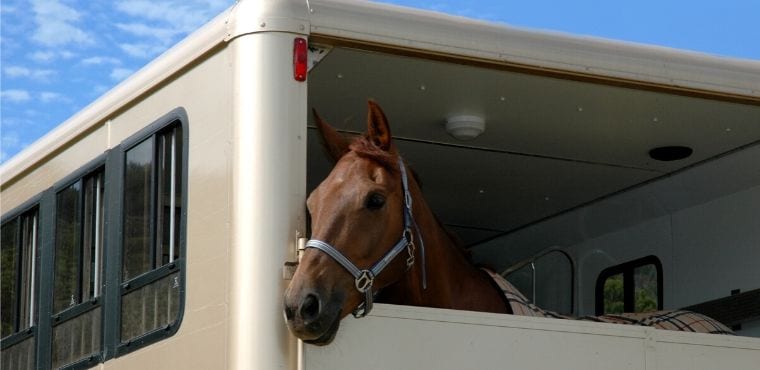The Arkansas Department of Agriculture has issued movement restrictions for horses in four Arkansas counties in reaction to the detection of the vesicular stomatitis virus, commonly referred to as VSV, in southern Missouri and eastern Oklahoma.
The virus, which is highly contagious among hooved animals and can also be transmitted to humans, was detected in Ozark County in Missouri and Adair County in Oklahoma. Baxter, Fulton and Marion counties are adjacent to Ozark County, Missouri; Crawford County is adjacent to Adair County.
The new restrictions brings the total number of counties under watch to eight — movement restrictions were issued for Benton, Carroll, Madison and Washington counties in late July after VSV was identified in three horses at an equine facility in Benton County.
VSV is not a new phenomenon, but state and federal departments of agriculture try to arrest outbreaks as quickly as possible whenever they occur. The current outbreak was first detected in the United States on April 13, 2020, and has since been identified on more than 300 premises in eight states.
According to the U.S. Department of Agriculture, VSV primarily affects horses and cattle, although it may affect other hooved animals such as sheep, goats and swine. Humans can also become infected with the virus when handling the animals and coming into contact with infected saliva or nasal secretions.
It is primarily spread among animals through black flies and other biting insects. The virus outbreak in Benton County appears to be a strain specific to horses.
The largest and most recent outbreak was in 2015, according to the USDA. “Outbreaks usually occur during the warmer months, often along waterways. The time from exposure to the onset of clinical signs is two to eight days,” according to a fact sheet from the department.
Heidi Ward, assistant professor and extension livestock veterinarian for the University of Arkansas System Division of Agriculture, said ranchers and other livestock owners in the region are fortunate that the VSV strain recently detected is limited to horses.
“Luckily, this particular VSV serotype is only affecting horses,” Ward said, noting that cattle, which represent a substantially larger portion of the Arkansas agricultural industry, are also susceptible.
VSV symptoms
VSV primarily attacks the superficial vessels of the nose, mouth, lips and tongue, causing ruptures and painful sores. This in turn causes an animal to produce an increased amount of saliva, which may be the strongest indicator of infection to an owner or veterinarian. The painful nature of the sores discourages animals from eating, which can lead to further illness.
In humans, the virus manifests flu-like symptoms, including fever, muscle aches and headaches.
In order to transport any equine, whether horses, donkeys or mules, off the owner’s property in counties now under the Agriculture Department’s movement restriction orders, owners must have a certificate of inspection issued by a veterinarian licensed in Arkansas and accredited by the USDA, not more than five days from the date of travel.
Owners of equine, cattle and other hooved animals in Arkansas preparing to transport their animals to other states should check with veterinary authorities in the destination states regarding what, if any, certifications are required.
Arkansans who have questions about VSV, or suspect animals on their property may be infected with the virus, should contact the state veterinarian’s office at 501-823-1733, or visit https://www.agriculture.arkansas.gov/livestock-poultry.
To learn more about extension programs in Arkansas, contact your local Cooperative Extension Service agent or visit www.uaex.edu. Follow us on Twitter at @UAEX_edu.






